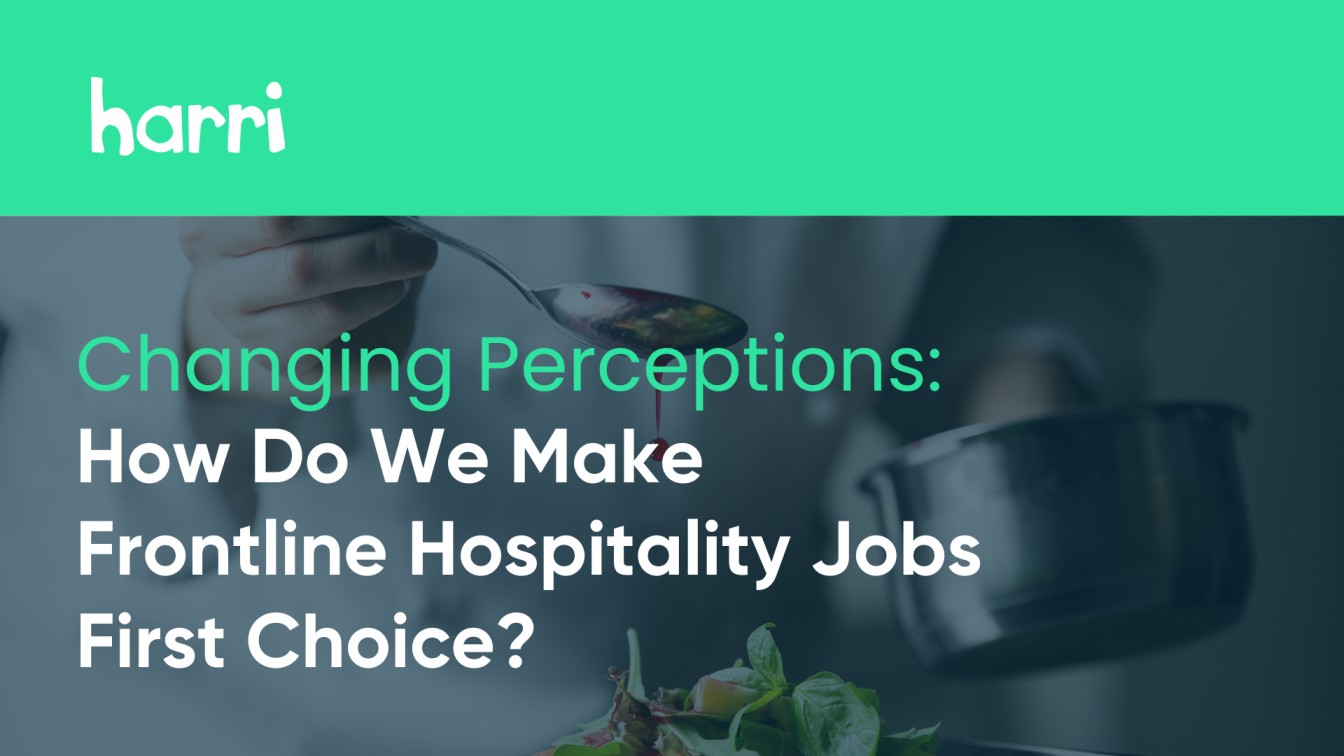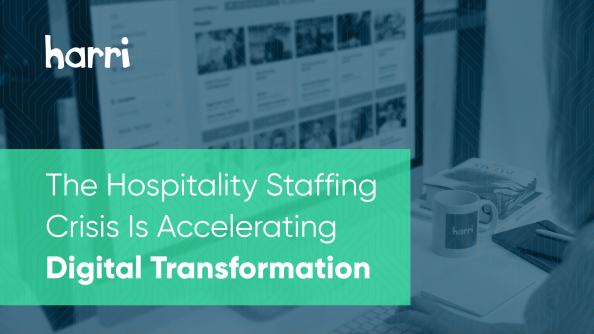Changing Perceptions: How Do We Make Frontline Hospitality Jobs First Choice?

- By Harri Insider Team | November 24, 2022
It’s a candidates’ market right now. Wherever you look, whether in the UK or the US, and in whichever sector, there are more job vacancies than there are job seekers. In the UK the number of unemployed has reached 1.2 million people, compared to 1.25 million unfilled jobs, as recorded by the Office for National Statistics. Similarly, in the US there are currently 1.7 jobs available for every unemployed worker.
For employers, that means a lot of competition to fill roles, and not just from within your own industry: frontline hospitality vacancies are competing with roles in retail and delivery, but also desk-based jobs across multiple sectors.
The trouble is, potential candidates have lots of preconceptions about frontline hospitality jobs versus desk-based jobs – believing that, unlike frontline hospitality workers, desk workers enjoy standard hours, a safe workplace which gives them what they need (or the option to work from home), robust benefits, and training and career progression opportunities. Clearly, we need to turn those perceptions around and show that hospitality is a rewarding career choice for all that can offer rapid career progression, excellent training opportunities with transferable skills and flexible working.
But how can we do that?
Create Flexible Work Arrangements
A study of the largest retail and food-service firms in the US found that over 60% of workers receive less than two weeks’ notice of their schedules, and half of those get less than one week’s notice. The same study – highlighted in the Workforce Management Technology: 2022 Market Guide (co-sponsored by Harri and prepared by Aspect43) – also found that 80% of workers have little to no input into their schedules.
Aspect43 points out that for parents, unstable work schedules impact their children, resulting in heightened stress for whole families. But it doesn’t need to be that way – giving staff regular hours and a reliable, predictable schedule through a scheduling platform is possible. Managers can automate manual tasks, giving them the time back they need to look after their teams, all while taking into account employees’ needs and giving them the visibility and flexibility they need.
Work in your working environment
According to Aspect43, remote and hybrid work environments are the most popular and requested ways to work today.
Their Insights at Work research found that 56% of employees prefer hybrid environments, 29% prefer remote, and just 16% prefer to work on-site. What is most surprising is that 64% of workers said they would consider quitting their jobs if asked to work full-time in an office.
But why is that? Due to the pandemic, it has been shown that lots of people can work just as effectively when at home rather than commuting in, spending money on travel and food, and being chained to a desk in an office all day. However, this doesn’t necessarily mean that everyone wants to work remotely – but people definitely crave the flexibility of hybrid working that allows them to have a life outside of their working schedule.
While it might not be possible for servers or waiters to work from home, a flexible schedule definitely allows for a better work/life balance.
Create an inclusive environment for all ages
To survive as an industry, hospitality needs to widen the net of its candidates – while once upon a time, a student looking for a part-time job may have first thought of a bar job as a decent option, the competition now means they may not consider a role before another, less ‘hands-on’ role. But the good news is, more and more over-50s are seeking work, largely to “to boost their retirement income”.
According to research by Caterer.com, 130,000 over 50s are working in the hospitality sector in the UK, most commonly in general management (27%), front-of-house (24%) and chef-related (23%) roles. To make your roles more attractive to older workers, offer flexible working patterns and regular breaks to accommodate those with health conditions, avoid using age-biased language in job ads and highlight benefits that might appeal to an older demographic, such as generous pension contributions.
Many hospitality employers actively encourage older workers to apply for positions because of their life skills, experience, connections, understanding of corporate culture and high probability of fitting in. One such employer is Whitbread Plc, which ran a successful recruitment campaign, #ChangeYourStory, specifically to attract older workers considering a career change or approaching retirement but with no intention of stopping work.
The Dorchester Collection also actively seeks older people to work in its hotels: it has no mandatory retirement policy and offers flexible working to make its frontline jobs more attractive to older workers.
Training for all
Recent research by HIT Training found that 80% of hospitality employees see a decline in training options as their career progresses. In comparison, 77% of all people surveyed said if they were offered a job with the prospect of doing an apprenticeship to develop their skills, they would take it.
Harri and CGA’s ‘Working in Hospitality’ survey also showed that employees are generally disappointed with the level of training they receive, with only a quarter saying they were very satisfied that their training had left them confident to fulfil a role to the best of their ability.
Clearly, offering apprenticeships and training to all workers, not just new recruits, can help you win out in the ever-growing race for talent – and keep hold of that talent too.
Want to find out how Harri can support your employee experience and help you expand your workforce? Connect with our team here.





















